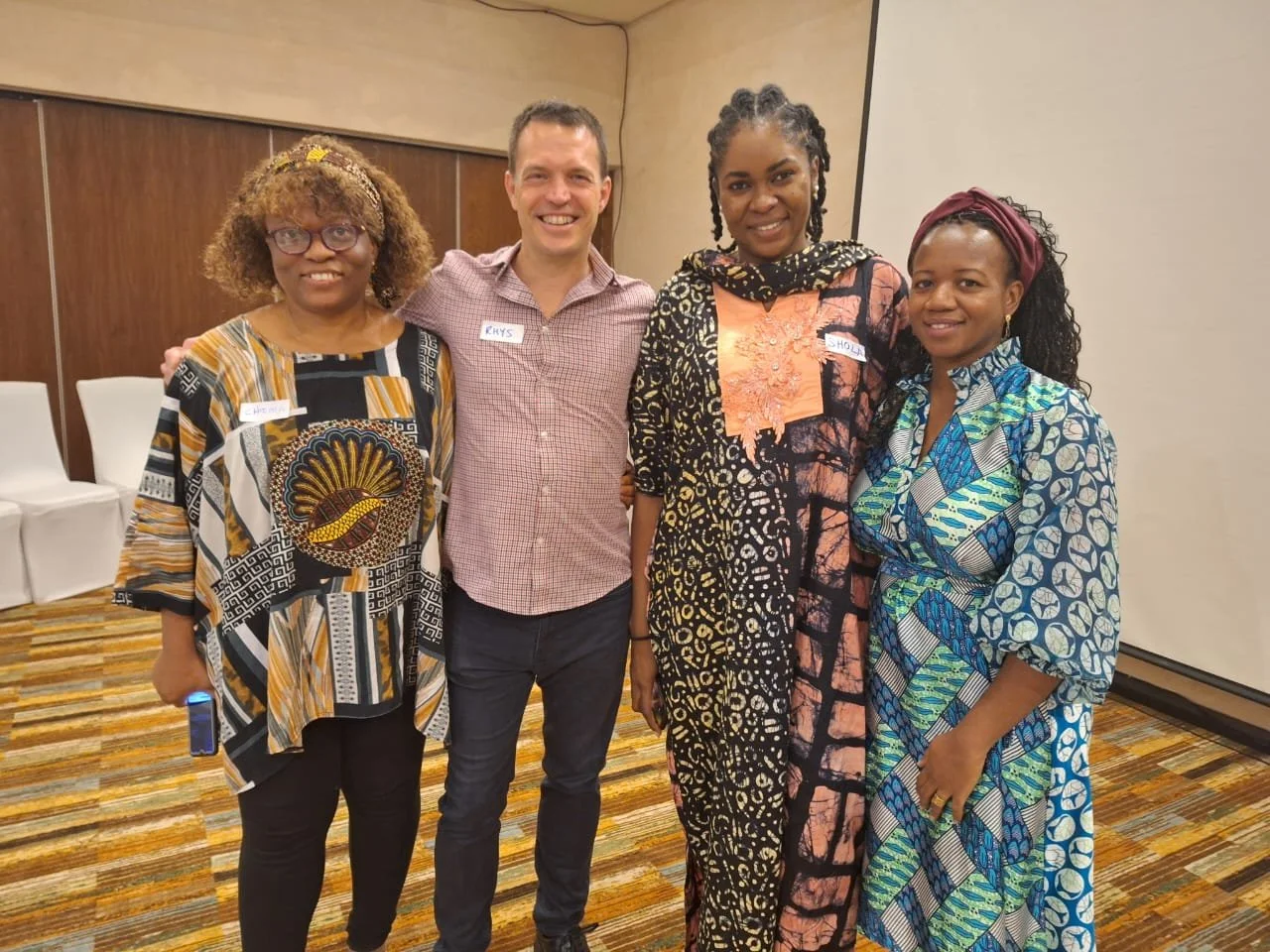The critical role of leadership in health system resilience
The global health landscape is at a turning point. The recent halt in US foreign aid has sent shockwaves through the sector, creating funding uncertainties that threaten essential health services in many low- and middle-income countries. Now more than ever, strong leadership and management within government health teams is critical to ensuring continuity, resilience, and impact.
At Amp Health, we remain steadfast in our mission to equip public sector leaders with the skills they need to navigate these turbulent times, drive sustainable solutions, and continue delivering quality health services. Read on for recent success stories from our government partners, showcasing the tangible impact of strengthened leadership and management in teams grappling with uncertainty, resource constraints, and change.
Togo continues to secure funding for its activities
Togo’s community health team joined Amp Health’s alumni community in January 2023 after two years of embedded support with a Management Partner (MP). It has been inspiring to see how the team has sustained and built upon their initial progress. They have emerged as leaders within the Ministry of Health and across the region, sharing knowledge with other programmes and providing guidance to teams from other countries at Amp Health’s annual Leadership Lab.
Their credibility within the Ministry of Health and among stakeholders nationwide has grown significantly. As a result, funding partners are increasingly eager to work with the team, leading to greater financial support for the county’s community health activities. This marks a striking transformation from just a few years ago, when the team struggled to secure international funding for their community health efforts.
Liberia’s NCD team wins grants, and WHO recognition
Liberia’s non-communicable diseases (NCD) team is transforming the NCD service delivery landscape through strategic leadership and collaboration. It has updated its NCD indicators and data collection tools, developed a system to track assistive technology in the country, and secured funding support from the American Cancer Society, the World Diabetes Foundation, and the International Atomic Energy Agency.
The team’s efforts have not gone unnoticed. The WHO highlighted Liberia’s actions to prevent and control NCDs and mental health conditions in a recently published global mapping report. In addition, the Ministry of Health has received a US$177 million grant from the Global Fund. A key part of this successful grant proposal was the plan to integrate treatment for NCDs into the robust chronic care delivery platform already established for HIV.
Central African Republic hosts World Malaria Day campaign with national visibility
Marcel Lama, MP, Central African Republic
World Malaria Day is globally recognised as a key opportunity to engage communities and stakeholders in malaria prevention, management, support, and treatment. Until recently, the Central African Republic’s malaria team faced challenges in organising national events due to limited institutional support, coordination issues, and insufficient partner backing. To overcome this, the MP supported the team in addressing organisation issues, navigating resourcing constraints, and proactively mobilising stakeholders to ensure the event’s success.
The team’s efforts resulted in a World Malaria Day campaign that garnered significant national media coverage, including a broadcast address by President Faustin-Archange Touadéra. The team’s successful advocacy raised its profile within the Ministry of Health and with partners such as Unicef and Macepa, who have since approached the malaria programme to offer more support.
Ghana Health Service harnesses African innovation to reduce maternal mortality rates
From L-R: Chioma Ogbozor, MP; Rhys Johnstone, Director of Learning; Shola Dele-Olowu, Director of Regional Initiatives; Ronke Ampiah Adamaley
In our 2025 Annual Report, we highlighted the Ghana Health Service’s groundbreaking approach to tackling maternal mortality through local innovation. The Country Innovation Platform - a partnership between the Ghana Health Service, USAID, Grand Challenges Canada, and Amp Health - aims to reduce maternal and newborn mortality rates by identifying and investing in African innovations tailored to local needs.
Eight innovations have been selected, ranging from a mobile application that provides real-time tracking of the patient referral journey to improved transport accessibility for mothers seeking healthcare. A pilot phase began in September 2024. Each innovation will be tested to measure its success and effectiveness before being rolled out to other regions on a larger scale.
Effective leadership – especially in times of crisis – ensures health systems can stay the course even when the path ahead seems uncertain. Over the past decade, we have partnered with 28 public health teams across 16 countries, helping to improve the skills of more than 900 civil servants. To find out more about our work supporting government partners to adapt, lead, and build systems that withstand the challenges ahead, click here.



